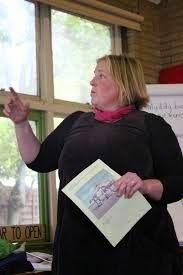Our project is based predominantly upon an idea around sharing, and cooperation. Sharing knowledge, practical skills, craft skills, and cooperative principles and values in a more community minded way. In principle it is less about making money and more about getting things done, where every member can directly benefit as well as the local and wider community. (Which we believe to be the original aims of the pioneers of cooperatives, dating back at least to the Rochdale pioneers of the early 19th century) The workers cooperative aims would be to set up and run projects that can create an income (financially and through trade bargains, LETS), mentoring and taking a guiding role over them. A kind of management hub over the various income generators. Some of this would be domestic services, eco burials, end of life planning, training for all ages in new skills through workshops, craft apprenticeships, and development of existing cooperative ventures.
The housing cooperative would be a place for some of our members to live in and a space for others to come and live in through a type of hostelling trial of living and working on and in an eco friendly permaculture site. This would also potentially create a revenue for the combined cooperative (A.E.C.) People could come and spend a few weeks or a month living and working in a space where we make things and grow things. Ideally no-one would own a home, but rent one at a pre-agreed rent (set by the cooperative members). the homes/land and assets would be owned in trust. A number of core members would work at sharing knowledge and skills, with these Woofers/guests and spread the ideas of a much more sustainable and simple lifestyle. The community would be constantly open for the general public to view, witness and experience the ways in which we build environmentally friendly and sustainable buildings and harness energy from 'off grid' sources. Our knowledge and experience would be free and transparently shared with others, so that new and inventive ways of living could be brought into the homes and lives of many more people. We hope to self-build using low carbon/carbon neutral methods and materials that could be sourced from the site itself or very locally. We would also aim to find and use, recycled materials, up-cycle materials and use very little of anything that could not keep the carbon footprint at a minimum. We would hope to encourage anyone tipping or throwing away materials to donate them to us for a better end purpose than landfill. Especially other companies involved in the building trade. We would be innovative and practical in using these resources and try to help anyone in need of the learning opportunities that came from such a venture.
Skip Pictures..here.
Following the permaculture principles of Earth Care/People Care/Share of Resources (Fair Share) that were pioneered by the Australian Bill Mollison back in the 70's and currently taught here in Lincolnshire by Hannah Thorogood, the A.E.C. would hope to create huge growing space projects in many and varied spaces/places around both the city and the county, for the benefit of anyone wishing to source affordable good quality food. Permaculture (permanent agriculture/culture) is a system for the design of any environment not particularly food growing spaces, hence being at the heart of our initiatives and planning. For more information about this subject see the link to Lincolnshire Permaculture web pages. LINK.
Following the permaculture principles of Earth Care/People Care/Share of Resources (Fair Share) that were pioneered by the Australian Bill Mollison back in the 70's and currently taught here in Lincolnshire by Hannah Thorogood, the A.E.C. would hope to create huge growing space projects in many and varied spaces/places around both the city and the county, for the benefit of anyone wishing to source affordable good quality food. Permaculture (permanent agriculture/culture) is a system for the design of any environment not particularly food growing spaces, hence being at the heart of our initiatives and planning. For more information about this subject see the link to Lincolnshire Permaculture web pages. LINK.










No comments:
Post a Comment